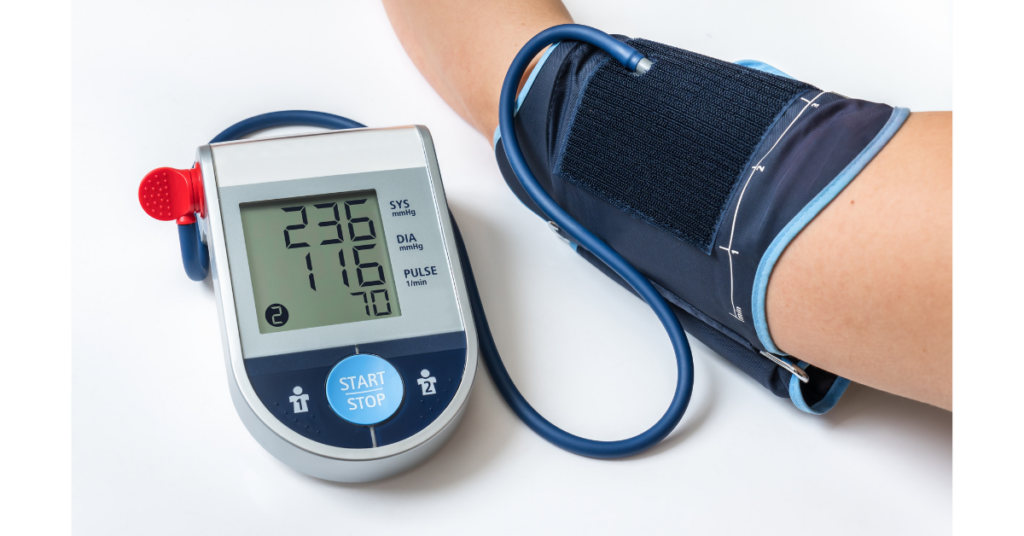What is high blood pressure?
The heart pumps the blood through the arteries causing it to press against the walls of the blood vessels.
This pressure is abnormally high in people who suffer from hypertension. A number of factors determine whether the blood pressure is high, low, or normal: The output from the heart, the resistance to blood flow of the blood vessels, the volume of blood, and blood distribution to various organs.
These factors can in turn be affected by the functioning of the nervous system and various hormones. When blood pressure is high, the heart has to work harder to pump a sufficient supply of blood to all of the body tissues.
In the long run, hypertension often leads to heart and kidney failure and stroke. High blood pressure is also commonly associated with coronary heart disease, arteriosclerosis, kidney problems, obesity, diabetes, hyperthyroidism, and adrenal tumours.
Blood pressure is measured in millimetres of mercury (mm Hg). It varies naturally with activity, increasing during exercise or stress and decreasing during rest. Blood pressure also varies in people, rising gradually with age and weight. The blood pressure of a resting, healthy young adult should not exceed 120/80 mmHg. However, if a person has a blood pressure of more than 140/90 mmHg, this is generally considered to be too high.
Hypertension is most common in people over the age of 35 years old and it is particularly prevalent in Africans living in the west, as well as overweight people, heavy drinkers, and women taking the contraceptive pill.
Signs and Symptoms
Hypertension is known as ‘the silent killer’ because it usually develops no symptoms until complications set in. Headaches, sweating, a rapid pulse, blurred vision, shortness of breath, and dizziness are signs often associated with advanced hypertension.
Causes
High blood pressure can be divided into two categories: Primary and secondary.
Primary high blood pressure is hypertension that is not caused by an underlying disease. The exact cause is unknown, but a variety of high risk factors have been identified. These include stress (causes the walls of the arteries to constrict), smoking, obesity, drug abuse, too much coffee / tea, excessive sodium intake (too much water retention can exert pressure on the blood vessels), and the use of the contraceptive pill.
Secondary high blood pressure is caused by an underlying health problem, such as a hormonal abnormality, an inherited narrowing of the aorta, atherosclerosis (the narrowing / hardening of the arteries), and weak kidney function (leading to the retention of excess sodium and fluid in the body).
Diagnosis
Blood pressure is monitored through a device known as a sphygmomanometer.
Conventional medicine treatment strategies
Drug therapy
Diuretics clear the body of excess fluids and salt (sodium).
Beta blockers reduce the heart rate and the heart’s output of blood.
Sympathetic nerve inhibitors prevent the sympathetic nerves from constricting blood vessels.
Vasodilators allow the blood vessels to dilate (widen) by causing the muscles in the walls of the vessels to relax.
Angiotensin Converting Enzyme (ACE) inhibitors interfere with the body’s production of angiotensin, a chemical that causes the arteries to constrict.
Angiotensin II receptor blockers block the effects of angiotensin.
Calcium antagonists reduces the heart rate and relaxes blood vessels
Complementary medicine treatment strategies
Diet: Eat a high-fibre diet since lack of dietary fibre is often associated with hypertension. Plenty of fresh fruit and vegetables and whole grains should also be included.
Drink only filtered water, since tap water may contain lead, which can cause hypertension if it is found in high enough levels.
Cut down on salt, alcohol coffee, tea, and saturated fat.
Stop smoking.
Exercise: Regular light to moderate exercise can help to reduce blood pressure.
Meditation, yoga, qigong, tai chi, hypnosis, and acupuncture can also help to relieve hypertension.
Maintain your ideal weight.

